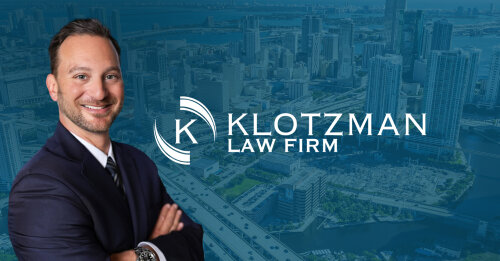Best Antitrust Litigation Lawyers in New York
Share your needs with us, get contacted by law firms.
Free. Takes 2 min.
Or refine your search by selecting a city:
List of the best lawyers in New York, United States
About Antitrust Litigation Law in New York, United States
Antitrust litigation is an area of law that focuses on preserving fair competition in the marketplace. In New York, as in the rest of the United States, antitrust laws are designed to prevent companies from engaging in practices that unfairly restrict competition or harm consumers, such as price fixing, market allocation, bid rigging, and monopolistic behaviors. Both federal and state laws play a role in combating anticompetitive conduct. The outcome of antitrust litigation can include financial penalties, injunctive relief, and changes to business practices.
Why You May Need a Lawyer
Legal disputes involving antitrust issues can be complex and high stakes. You may need a lawyer if you believe your business has been harmed by unfair competition from a competitor, such as price fixing or exclusionary practices. Similarly, if your company is being investigated or accused of violating antitrust laws, professional legal representation is crucial to protect your rights. Other common situations include reviewing mergers or acquisitions for compliance with antitrust laws, defending against investigations by governmental authorities, or pursuing class action lawsuits related to anticompetitive conduct. A qualified antitrust lawyer will help you navigate these intricate matters and can represent your interests in negotiations, investigations, or court proceedings.
Local Laws Overview
Antitrust litigation in New York is governed by both federal and state laws. On the federal level, key statutes include the Sherman Act, the Clayton Act, and the Federal Trade Commission Act. New York’s Donnelly Act is the state’s primary antitrust statute and is interpreted in close alignment with federal law, although it also allows for distinct state-level enforcement actions. The state Attorney General’s Office actively investigates and prosecutes antitrust violations in New York. Some local aspects to note include the right for private parties to seek treble damages and attorneys’ fees, as well as specific state remedies aimed at protecting New Yorkers from unfair competition in various industries. When federal and state agencies collaborate on investigations, both sets of laws may apply to a single case.
Frequently Asked Questions
What is antitrust litigation?
Antitrust litigation involves legal disputes over business practices that allegedly restrict competition or harm consumers. These cases may be brought by government authorities, competitors, or consumers.
Who can file an antitrust lawsuit in New York?
Lawsuits may be filed by government agencies, such as the New York State Attorney General or the Department of Justice, as well as by private individuals, businesses, or groups harmed by anticompetitive conduct.
What actions can violate antitrust laws?
Common violations include price fixing, bid rigging, exclusive dealing, tying arrangements, and creating or maintaining monopolies.
What penalties can result from an antitrust violation?
Violators may face fines, court-ordered changes to business practices, compensation to affected parties, and in some cases, criminal penalties. Damages may be tripled in successful civil cases.
How does the Donnelly Act relate to federal antitrust law?
The Donnelly Act is New York’s antitrust law. It generally mirrors the federal Sherman Act but allows for enforcement at the state level, potentially resulting in additional remedies or actions.
Can a small business be involved in antitrust litigation?
Yes, both large and small businesses can be involved, either as plaintiffs or defendants. Small businesses are sometimes affected by the anticompetitive actions of larger competitors.
Do I need to prove harm to bring an antitrust claim?
Generally, you must show that you were harmed by the anticompetitive conduct to have standing to sue. This often includes demonstrating actual financial loss or damage to your business interests.
Can antitrust violations be prosecuted criminally?
Yes, certain violations, like price fixing and bid rigging, can result in criminal prosecution, fines, and even jail time.
What should I do if my business is being investigated for antitrust violations?
Contact an experienced antitrust attorney immediately. Do not destroy any documents or discuss the investigation without legal counsel present.
How long do I have to file an antitrust lawsuit in New York?
The statute of limitations varies depending on the specifics of the case, but antitrust claims generally must be filed within four years of the alleged violation.
Additional Resources
If you are seeking further information, consider contacting the following resources:
- New York State Attorney General’s Antitrust Bureau
- The United States Department of Justice Antitrust Division
- The Federal Trade Commission Bureau of Competition
- Local bar association referral services
- Legal aid clinics and nonprofit organizations with expertise in competition law
Next Steps
If you believe you are affected by antitrust issues or are facing a related investigation in New York, take these steps:
- Document all relevant facts and gather any supporting evidence related to the alleged anticompetitive conduct.
- Avoid discussing the situation with outside parties until you have legal advice.
- Consult with an experienced antitrust attorney who understands both federal and New York-specific laws.
- Consider reaching out to governmental agencies if you wish to report suspected violations.
- Act promptly, as antitrust cases are subject to strict deadlines.
Lawzana helps you find the best lawyers and law firms in New York through a curated and pre-screened list of qualified legal professionals. Our platform offers rankings and detailed profiles of attorneys and law firms, allowing you to compare based on practice areas, including Antitrust Litigation, experience, and client feedback.
Each profile includes a description of the firm's areas of practice, client reviews, team members and partners, year of establishment, spoken languages, office locations, contact information, social media presence, and any published articles or resources. Most firms on our platform speak English and are experienced in both local and international legal matters.
Get a quote from top-rated law firms in New York, United States — quickly, securely, and without unnecessary hassle.
Disclaimer:
The information provided on this page is for general informational purposes only and does not constitute legal advice. While we strive to ensure the accuracy and relevance of the content, legal information may change over time, and interpretations of the law can vary. You should always consult with a qualified legal professional for advice specific to your situation.
We disclaim all liability for actions taken or not taken based on the content of this page. If you believe any information is incorrect or outdated, please contact us, and we will review and update it where appropriate.
Browse antitrust litigation law firms by city in New York
Refine your search by selecting a city.

















